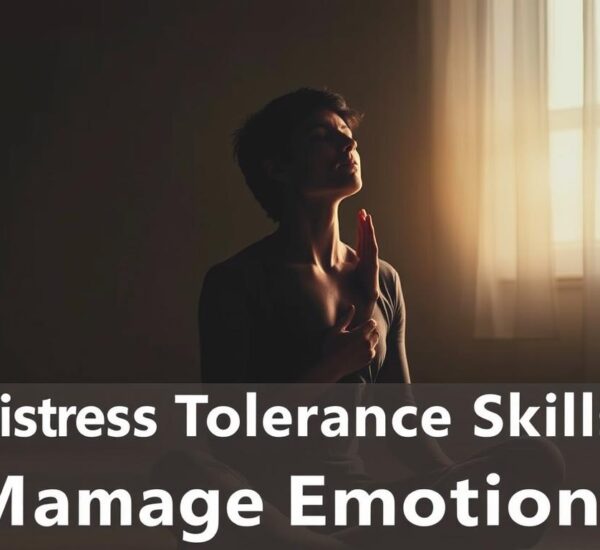Finding the right psychiatrist can be tough, with so many choices. In New York, it’s even harder because of the many mental health specialists.
Personalized care is key for better mental health. Studies show that the type of practice, the psychiatrist’s training, and their treatment approach matter a lot.
With the right help, you can find a skilled therapist or mental health expert. They can offer the support you need. This article will help you find the best professional for you.
Key Takeaways
- Consider the type of practice when selecting a mental health professional.
- The psychiatrist’s training and experience are important.
- A personalized approach to treatment is essential for better mental health.
- There are many options, making it hard to choose the right psychiatrist.
- Guidance is necessary to navigate through the available choices.
Understanding the Role of a Psychiatrist
A psychiatrist is a key player in mental health care. They are medical doctors who focus on mental, emotional, and behavioral disorders. They offer counseling services, psychological treatment, and psychiatric care to help patients manage their conditions.
What Does a Psychiatrist Do?
Psychiatrists evaluate both physical and mental aspects of psychological problems. They use various treatments, including:
- Medication management to alleviate symptoms
- Psychotherapy to address underlying issues
- Lifestyle changes to promote overall well-being
By combining these methods, psychiatrists help patients achieve better mental health and improve their quality of life.
Difference Between Psychiatrist and Psychologist
Psychiatrists and psychologists are both mental health professionals, but they differ. Psychiatrists are medical doctors (MDs or DOs) who can prescribe medication. Psychologists have a doctoral degree in psychology (Ph.D. or Psy.D.) but cannot prescribe medication in most states.
Choosing between a psychiatrist or a psychologist depends on your needs. If medication is part of your treatment, a psychiatrist might be the better choice.
Common Conditions Treated by Psychiatrists
Psychiatrists treat many mental health conditions, including:
- Depression and anxiety disorders
- Bipolar disorder and other mood disorders
- Attention Deficit Hyperactivity Disorder (ADHD)
- Schizophrenia and other psychotic disorders
- Eating disorders and substance abuse
Knowing what psychiatrists treat helps individuals navigate their mental health care options. It ensures they seek the right help when needed.
Signs You Might Need a Psychiatrist
It can be hard to know when to get help for your mental health. But recognizing the signs is the first step to healing. We all feel stressed, anxious, or sad sometimes. But if these feelings last too long or get in the way of our daily lives, it’s time to see a psychiatrist.
Emotional Distress and Mental Health Symptoms
Feeling emotionally distressed can show up in many ways. You might feel sad, anxious, or irritable a lot. You might also notice changes in how much you eat, sleep, or focus. If you’re feeling these things, it could mean you need help from a mental health expert.
Common symptoms include:
- Prolonged feelings of sadness or hopelessness
- Anxiety or excessive worry
- Changes in appetite or sleep patterns
- Difficulty concentrating or making decisions
Impact on Daily Life and Relationships
Mental health issues can really affect how we live and our relationships. We might struggle to keep up with our usual routines or do well at work. We might also find it hard to enjoy things we used to love. And problems with family and friends can make us feel even more alone and upset.
If your mental health is messing with your daily life and relationships, it’s time to get help. A psychiatrist can offer the support and treatment you need. They can help you manage your symptoms and feel better overall.
When to Seek Professional Help
If you’re feeling emotionally distressed or have symptoms that affect your daily life, get help. Remember, asking for help is a sign of strength, not weakness. A qualified psychiatrist can help figure out what’s going on and create a treatment plan just for you.
Don’t hesitate to seek help if you’re struggling with your mental health. Seeing a psychiatrist near you is the first step to a happier, healthier life.
How to Find a Qualified Psychiatrist
Finding the right psychiatrist takes research, referrals, and patience. Today, we have many resources to help us find the best professional.
Researching Local Options
Start by looking at psychiatrists in your area. Check their qualifications and specialties. Local medical boards and psychiatric associations can give you important info.
Online reviews and ratings can also help. They show a psychiatrist’s reputation and how happy patients are.

Online Directories and Resources
The internet is a great tool for finding a psychiatrist. Use directories from psychiatric organizations or health insurance sites. They list psychiatrists’ education, specialties, and how to contact them.
Health forums, mental health websites, and social media groups can also help. They offer advice from people who have seen local psychiatrists.
Recommendations from Friends and Family
Ask friends, family, or your doctor for recommendations. These come from real experiences. They can tell you about a psychiatrist’s skills and care.
When asking for recommendations, ask about their experience. Find out about the psychiatrist’s treatment approach and overall satisfaction.
Factors to Consider When Choosing a Psychiatrist
Finding the right psychiatrist is important. You need someone who understands your mental health issues and offers the right care. It’s about finding a professional who gets you and supports you.
When choosing a psychiatrist, we must look at several key factors. Their specialization and areas of expertise are critical. They directly affect the quality of care you’ll get.
Specialization and Areas of Expertise
A psychiatrist’s area of focus is key. Some specialize in child and adolescent psychiatry, geriatric psychiatry, or addiction. It’s important to find someone who matches your needs.
For example, if you’re a teenager with anxiety, a child and adolescent psychiatrist is best. Their treatment approach should also match your preferences.
Availability and Accessibility
Availability and accessibility are also important. Look at their office location, hours, and wait times. A convenient and flexible psychiatrist makes a big difference.
Telepsychiatry services are also worth considering. They’re great for those with busy lives or mobility issues. It’s key to find a psychiatrist who fits your schedule.
Insurance and Payment Options
Financial aspects of psychiatric care are also vital. Check if the psychiatrist is in your insurance network. Ask about payment options and any extra fees.
| Factor | Importance | Considerations |
|---|---|---|
| Specialization | High | Area of expertise, experience with specific conditions |
| Availability | High | Office location, office hours, telepsychiatry options |
| Insurance and Payment | High | In-network status, payment options, additional fees |
By considering these factors, we can make a smart choice. It’s about finding a psychiatrist who meets your needs and supports your mental health journey.
Initial Consultation: What to Expect
When you decide to seek help from a mental health professional, knowing what to expect is key. Your first meeting with a psychiatrist is important.
This first meeting is key. It’s where you share your mental health concerns. The psychiatrist will then understand your situation fully.
Preparing for Your First Visit
To make the most of your first visit, preparation is key. Start by gathering details about your symptoms. Note when they started and how they affect your daily life.
Also, list any medications you’re taking and your medical and mental health history. Having this info ready helps your psychiatrist understand you better. It’s also wise to write down any questions or concerns you have. This way, you won’t forget to ask them during your visit.
Common Questions to Ask
Asking the right questions during your first visit can give you valuable insights. Ask about their treatment approach and experience with cases like yours. Also, find out how they will help you create a treatment plan.
You might also want to ask about their availability for follow-up appointments. Ask about their communication policy between sessions and how they’ll track your progress over time.
Setting Treatment Goals
Setting treatment goals is a team effort between you and your psychiatrist. During your first visit, talk about what you hope to achieve. This could be managing symptoms or improving your quality of life.
By setting these goals early, you and your psychiatrist can work together more effectively. You’ll develop a treatment plan that suits your needs. This plan might include medication, therapy, or other interventions. It will be adjusted as needed based on your progress.
The Importance of a Therapeutic Relationship
Having a strong bond with your psychiatrist is key to feeling better. This bond is based on trust, open talks, and understanding your mental health needs.
Building Trust with Your Psychiatrist
Trust is the base of a good relationship with your psychiatrist. To trust them, you need to feel at ease and sure they’re looking out for you. Here are some key factors that contribute to building trust:
- Clear and respectful communication
- Empathy and understanding
- A non-judgmental attitude
- Consistency in treatment approach
Communication and Feedback
Talking well with your psychiatrist is very important. It’s not just about them listening; it’s about you feeling like they get you. Talking openly about your worries, symptoms, and what you want from treatment can really help. Telling your psychiatrist what works and what doesn’t helps them tailor your care just for you.
Continuity of Care
Getting the same care over time is important. This means seeing your psychiatrist regularly, sticking to your plan, and making changes when needed. Staying with a consistent care plan can lead to better results and mental health.
By working on a strong relationship, you and your psychiatrist can reach your mental health goals together. This partnership is vital for dealing with the challenges of psychiatric care and making sure you get the support you need.
Types of Treatments Provided by Psychiatrists
Psychiatrists offer many treatments for mental health needs. It’s important to know what treatments are available when you need help.
Medication Management
Mental health specialists, like psychiatrists, often use medication. They prescribe drugs to help with depression, anxiety, and bipolar disorder. It’s key to watch how the medication works and make changes as needed.
Psychotherapy Approaches
Psychotherapy, or talk therapy, is another treatment. Psychiatrists use different types, like cognitive-behavioral therapy (CBT) and psychodynamic therapy. These therapies help patients understand their symptoms and find ways to cope. They aim to improve the patient’s life quality.
Alternative Treatments
Some psychiatrists also offer alternative treatments. They might use mindfulness and meditation to help with stress. These methods are often used along with traditional treatments. They help create a treatment plan that fits the individual’s needs.
The Role of Technology in Psychiatric Care
Technology has changed how we treat mental health. It helps mental health experts give better care. This change is key in making treatment more effective.
Telepsychiatry and Its Benefits
Telepsychiatry uses video calls to help people with mental health issues. It’s popular because it makes getting help easier. It also cuts down wait times and makes patients more involved in their care.
Telepsychiatry lets mental health professionals help more people. This includes those in areas far from mental health services.
Some big pluses of telepsychiatry are:
- It’s easier to schedule appointments.
- You don’t always have to see a doctor in person.
- It can make patients feel more at ease.
Mental Health Apps and Resources
Mental health apps and resources are also big helpers. They offer support and advice when you’re not in a session. Apps can track your mood, teach you new skills, and connect you with others.
Apps have many benefits, like:
- They give you personal advice and support.
- They have lots of educational materials.
- They help you connect with others.
Maintaining Confidentiality Online
Keeping patient info safe online is very important. Mental health experts must protect patient data. They do this with strong security steps like encryption.
To keep things private, psychiatrists near me and others must:
- Use secure, HIPAA-compliant platforms for online chats.
- Teach patients about online safety and privacy.
- Keep their security measures up to date.
By using technology wisely and keeping things private, we can offer better counseling services. This helps us give top-notch care to those who need it.
Myths and Misconceptions About Psychiatry
Psychiatry faces many misconceptions that affect how we see mental health care. These come from not understanding, stereotypes, or wrong information. It’s key to know the truth about mental health care and its impact on treatment.
Debunking Common Stereotypes
Many think a psychiatrist is only for serious mental illnesses. But, psychiatrists help with many issues, like anxiety, depression, and stress. Seeking help is a sign of strength, not weakness.
Another myth is that psychotherapy doesn’t work. But, many psychotherapy methods are proven to help, often with medication too.

Understanding the Reality of Mental Health Care
Mental health care is vital for our overall health. A therapist or psychiatrist helps with coping, symptom management, and improving life quality. Mental health care is personalized, not one-size-fits-all.
| Myth | Reality |
|---|---|
| Psychiatrists only prescribe medication. | While medication management is a part of psychiatric care, many psychiatrists also provide psychotherapy. |
| Mental illness is a sign of weakness. | Mental illnesses are health conditions that can affect anyone, regardless of their strength or character. |
| Seeking psychiatric help is a last resort. | Early intervention is often key to effective treatment; seeking help early can prevent symptoms from worsening. |
How Public Perception Affects Treatment
How we see psychiatry and mental health care affects treatment seeking. By learning and sharing the truth, we can reduce stigma and encourage more to seek help.
Open talks about mental health are important. Sharing our stories and supporting each other helps build a supportive community.
Mental Health Awareness and Education
Mental health awareness and education are key to a healthier society. Understanding and addressing mental health issues helps create a supportive environment for all. It’s about recognizing mental health’s importance and educating ourselves and others.
Talking openly about mental health reduces stigma and encourages seeking help. Creating a culture where mental health discussions are normalized makes our community more compassionate and understanding.
Importance of Open Conversations
Open and honest talks about mental health can change a lot. They help reduce stigma and make it easier for people to seek help. By discussing mental health openly, we build a supportive and understanding community.
- Encourages individuals to seek help without fear of judgment
- Promotes a culture of understanding and empathy
- Helps in early identification and intervention of mental health issues
Resources for Learning More
There are many resources for learning about mental health. Online courses, educational websites, books, and support groups offer a lot of information. Using these resources empowers us to manage our mental health and support others.
| Resource Type | Description | Benefits |
|---|---|---|
| Online Courses | Structured educational programs available online | Flexibility, accessibility, and thorough learning |
| Support Groups | Community-based groups for sharing experiences | Provides a sense of community, reduces feelings of isolation |
| Educational Books | Publications on mental health topics | Detailed information, personal insights, and coping strategies |
Community Support Groups and Workshops
Community support groups and workshops are great for those dealing with mental health issues. They offer a safe space for sharing, learning, and support. By joining these groups, individuals feel less alone and more supported in their mental health journey.
Workshops provide hands-on learning and the chance to develop new skills for managing mental health. They cover topics like stress management and coping with specific conditions.
When to Seek a Second Opinion
Getting a second opinion is key in your mental health journey. If your current treatment isn’t working or you’re facing side effects, it’s time to look at other options.
Indicators for Change
Signs you might need a change include not seeing progress, ineffective medication, or poor communication with your psychiatrist. We should be active in our mental health care. If your current psychiatrist isn’t meeting your needs, it’s time to look for someone else.
Approaching the Topic
Talking to your current psychiatrist about your concerns can be tough. But being open and honest is vital. This conversation can lead to changes in your treatment plan. If not, it might be time to find a new psychiatrist who fits your needs better.
Finding Alternative Counseling Services
When looking for a new psychiatrist or therapist, use online directories or ask friends and family for recommendations. You can also look for counseling services in your area. Being proactive helps us find the right professional for our mental health.



